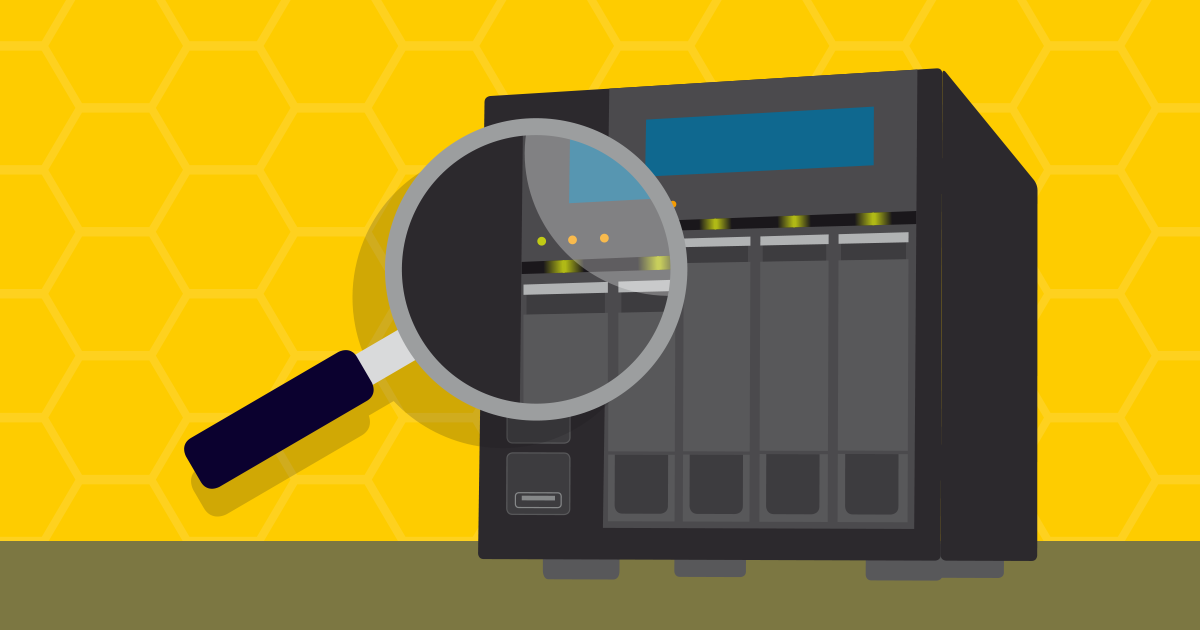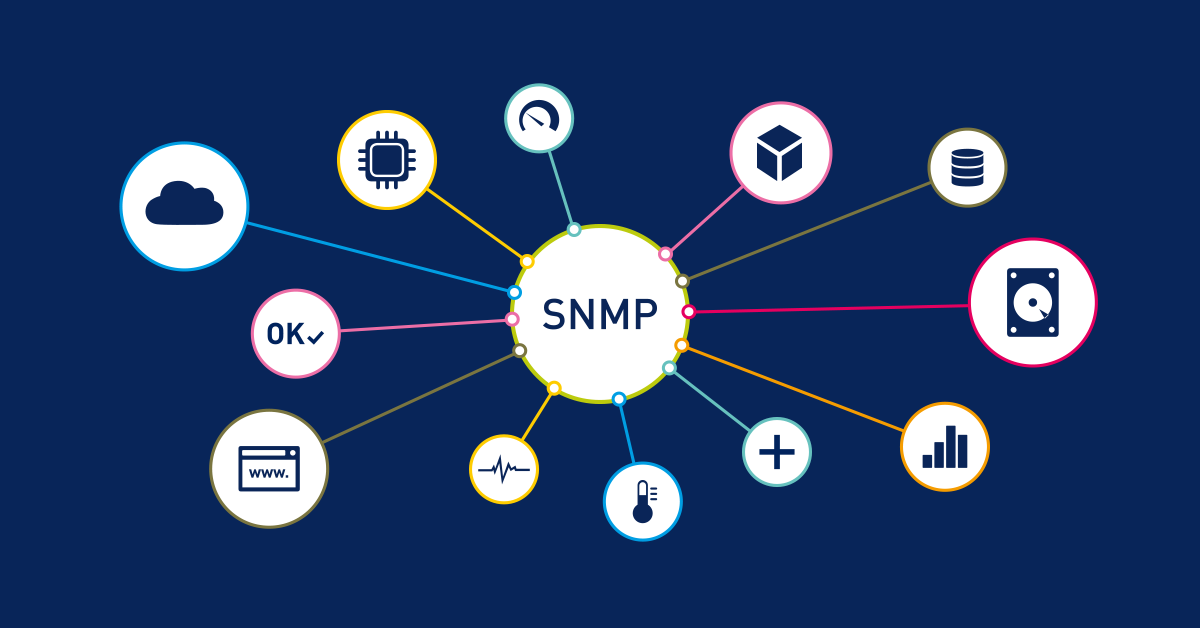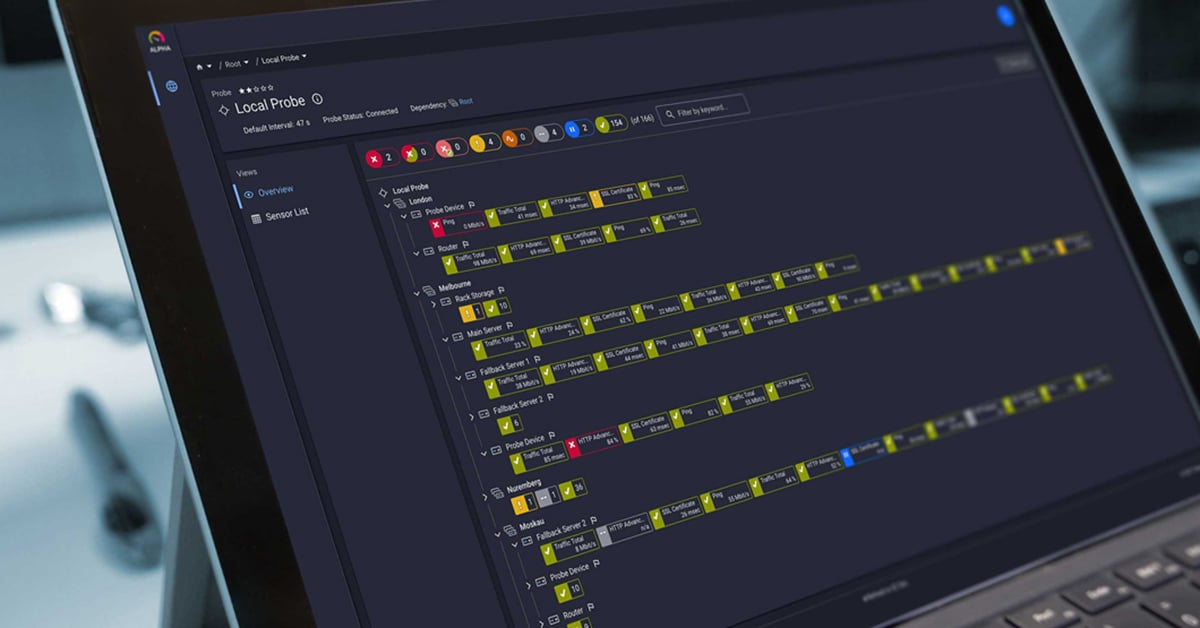Last weekend, a good friend of mine had a massive data loss. His data is stored conscientiously on a fail-safe NAS system. An additional standby disk is even available for seamless replacement in the event of a hard disk failure. Nevertheless, his NAS was not available when trying to access it. A ping of the device was possible, but any attempts to access the folder structure led to error messages.
Result of the physical examination of the device: The fan had failed and the data cube was nearly glowing. A few hours of detailed troubleshooting later, it was sad certainty: Two of the four hard drives failed due to heat-damage, and all data had been irrecoverably lost.
No Monitoring = a Misfortune in the Private Sector, Potential Disaster in the Business Environment
Consistent monitoring of the device would have made it very likely that this failure could have been avoided. What is already a medium disaster in the private sector can threaten the existence of a company in a business environment. Although the backup strategies are becoming more and more sophisticated, a defective storage system will, at the very least, lead to a brief operational failure, even with an existing backup.
This is reason enough to think about which storage systems need to be monitored and how detailed the monitoring should be.
Which Storage Systems Should I Monitor?
Basically, you should surveil all your central data storage devices. There's a reason you're storing data on your systems. If you could proceed without the data and not have any issues, there would be no reason to store it at all.
What Can Such Monitoring Look Like?
The scope of storage monitoring depends on the complexity of the systems and the desired data availability. A hard disk with backed up logfiles undoubtedly has a different priority than the data of the ERP system. Depending on the requirements, there are also various options for configuring monitoring.
To obtain vital signs of a storage system at all, it is necessary to find out how the device communicates with the environment. Many systems already provide their data via a SOAP or API interface. Other devices offer an SNMP interface, or can be queried directly via WMI (Windows Management Instrumentation) in Windows environments.
Some proprietary storage solutions do not offer direct communication; in this case, it is necessary to check whether the vendor's software provides the necessary information to manage the device.
Benefits of Storage Monitoring
Those who constantly monitor their storage environment can plan when capacity expansion of the hard disks becomes necessary, thus preventing storage space problems.
Hardware problems can be detected at an early stage. For example, the admin can already recognize a hard disk's imminent death by a tentative read of its SMART status, and can take appropriate precautions.
In addition, admins who know the current state of their IT systems sleep better, and probably have lower blood pressure and a higher life expectancy than colleagues who know nothing about the status of their IT environment. ;)
Storage Monitoring with PRTG
PRTG Network Monitor provides various sensors for storage monitoring. With out-of-the-box functionaliy, you can check storage environments from Dell EMC, HP, NetApp, QNAP, Synology, and IBM. For other storage solutions, corresponding SNMP, WMI and API sensors offer the possibility to request status data individually and in detail. In addition to monitoring physical devices, you can also examine virtual infrastructures.
iWMI stands for Windows Management Instrumentation. Designed by Microsoft, it is an infrastructure for the standardized management of data and information that is device independent. Since Windows 2000, WMI comes preinstalled with Windows operating systems. Read more ...
So if you are not already monitoring your storage devices, roll up your sleeves and get started!
Your Personal Storage Incidents
Have you ever had to struggle with a defective storage system? Did you lose data in the process? And how do you protect yourself against the scenarios described above? We are curious to hear your stories in the comments!
 Published by
Published by 











